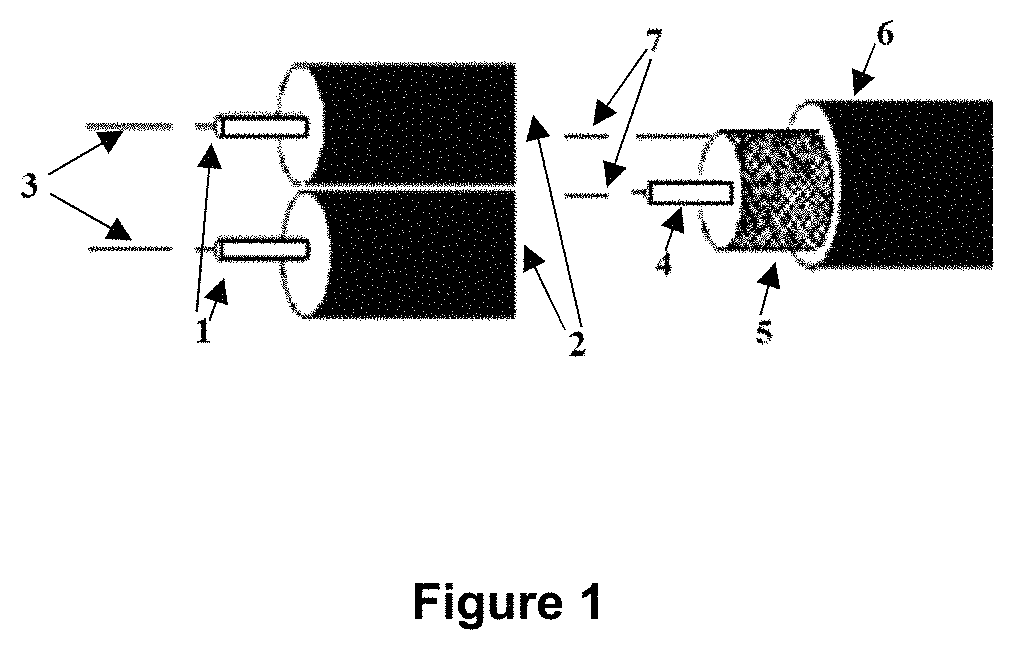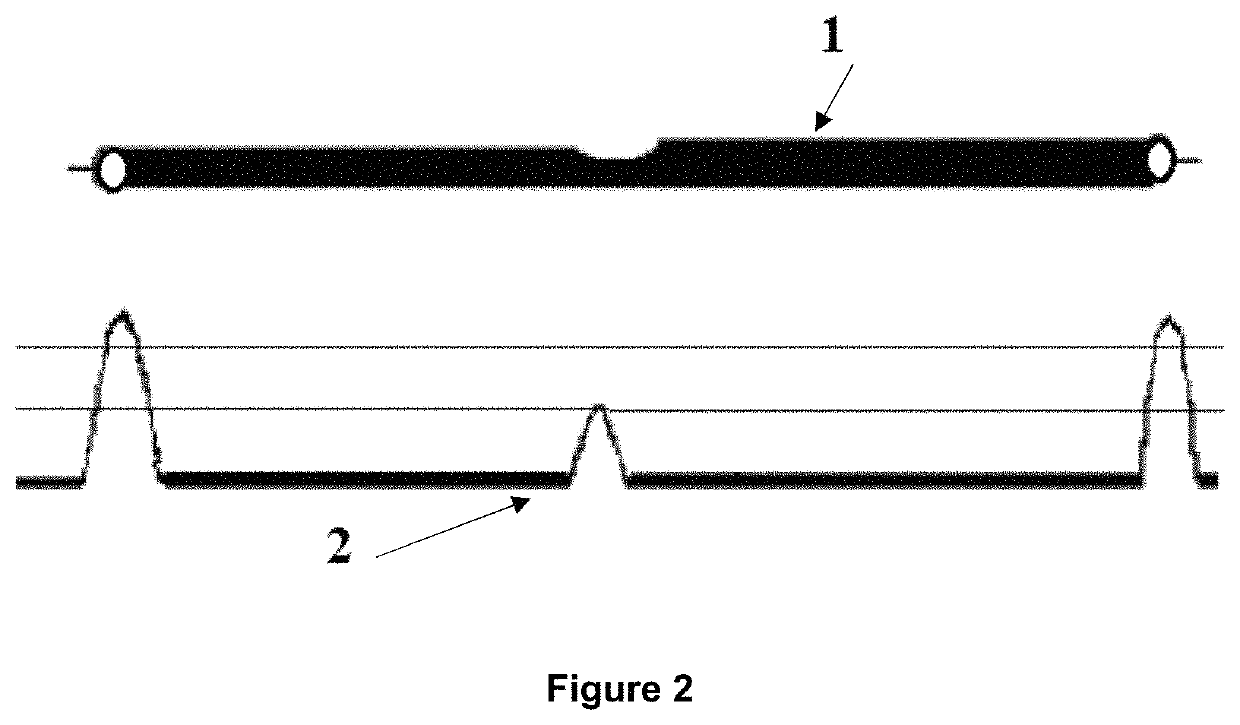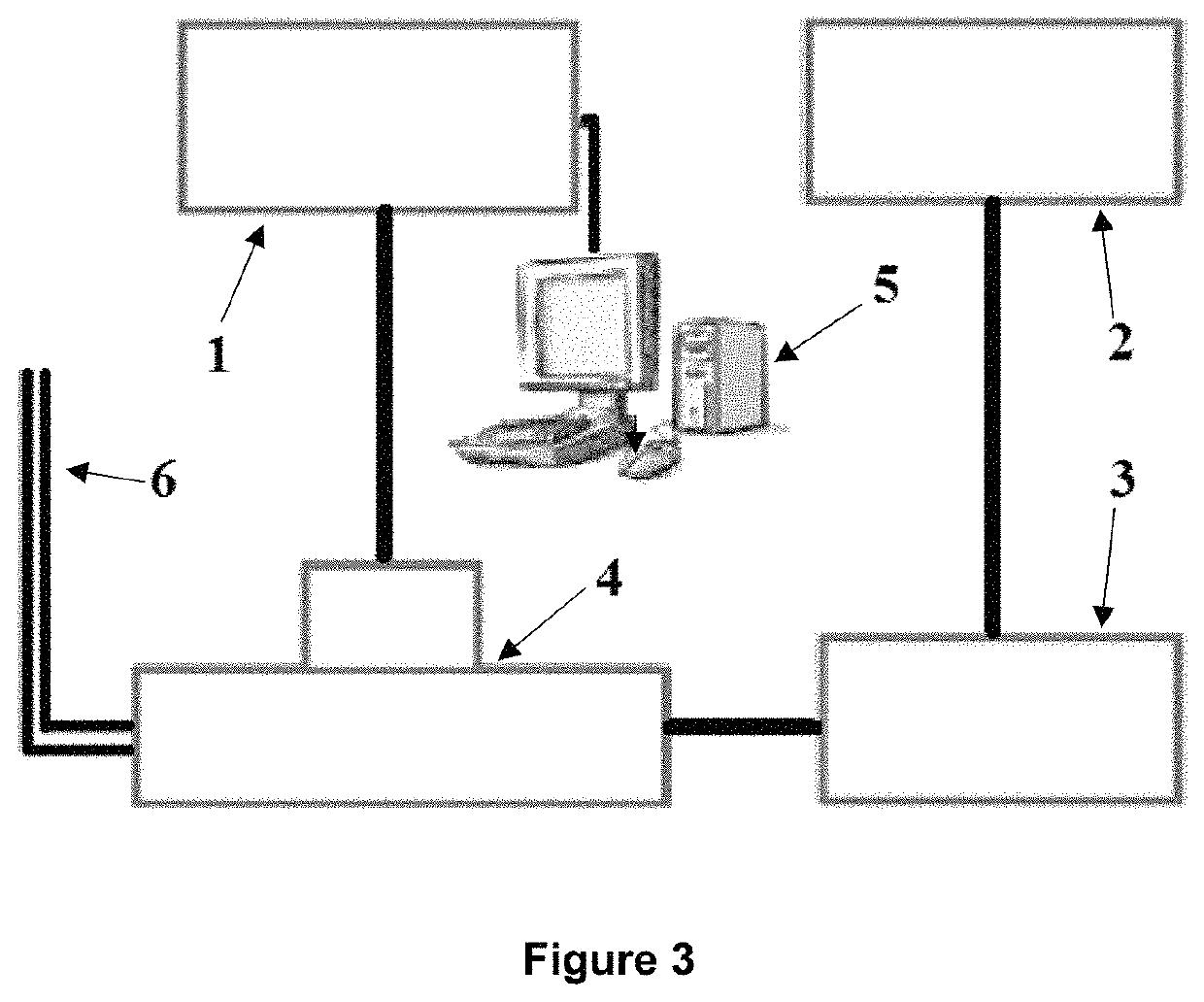Hydrocarbon salinity measurement system at bottom of well at extreme conditions of pressure and temperature by means of time domain reflectometry
a technology of salinity measurement and oil well, which is applied in the direction of measurement devices, instruments, material resistance, etc., can solve the problems of high cost of oil, difficult detection of inability to detect capacity isolated devices or inductive faults
- Summary
- Abstract
- Description
- Claims
- Application Information
AI Technical Summary
Benefits of technology
Problems solved by technology
Method used
Image
Examples
Embodiment Construction
[0036]The system for measuring salinity in wellbore hydrocarbons using the time domain reflectometry (TDR) technique is based on a pulse generator that sends a pulse through a waveguide or cable, This metal waveguide is brought into contact with the hydrocarbon at which its salinity is to be measured, the return signal is measured on an oscilloscope where it is compared to the originally sent pulse. The time of arrival and amplitude of the return pulse are reflections of the change in impedance change at several points or at the end of the line, these changes in the impedance can be measured and analyzed. Given a velocity of propagation of the pulse in the line, the arrival time of the return pulse depends on the location of the impedance change, whereas the amplitude of the return pulse is related to the attenuation of the signal in the cable due to the Length of said cable.
[0037]How to mentioned above, FIG. 4 shows how the waveguide (1) (2) would be installed inside an oil well (3...
PUM
| Property | Measurement | Unit |
|---|---|---|
| pressures | aaaaa | aaaaa |
| temperatures | aaaaa | aaaaa |
| lengths | aaaaa | aaaaa |
Abstract
Description
Claims
Application Information
 Login to View More
Login to View More - R&D
- Intellectual Property
- Life Sciences
- Materials
- Tech Scout
- Unparalleled Data Quality
- Higher Quality Content
- 60% Fewer Hallucinations
Browse by: Latest US Patents, China's latest patents, Technical Efficacy Thesaurus, Application Domain, Technology Topic, Popular Technical Reports.
© 2025 PatSnap. All rights reserved.Legal|Privacy policy|Modern Slavery Act Transparency Statement|Sitemap|About US| Contact US: help@patsnap.com



